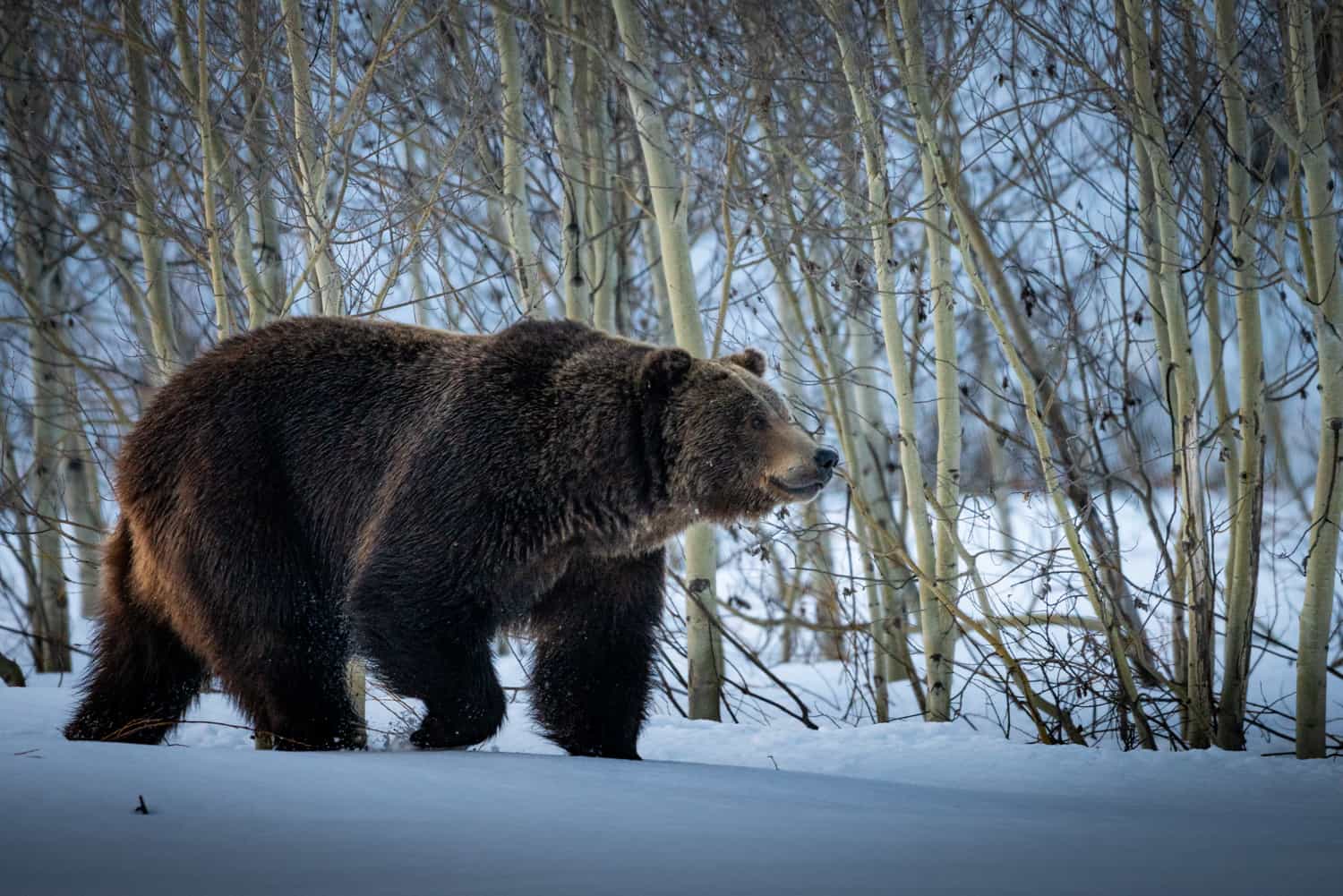
The National Park Service and U.S. Fish & Wildlife Service are seeking public input on a draft Environmental Impact Statement (EIS) that evaluates options for restoring grizzly bears to the North Cascades Ecosystem in Washington, where the animals once roamed. The U.S. Fish & Wildlife Service is also inviting public comment on a proposed rule under section 10(j) of the Endangered Species Act that would provide local communities more flexibility to manage the grizzly bear population with additional wildlife management tools.
Grizzly bears occupied the North Cascades for thousands of years as an essential part of the ecosystem, distributing native plant seeds and keeping other wildlife populations in balance. In the 20th century, humans nearly hunted them to extinction in the area. The last confirmed sighting of a grizzly bear in the U.S. portion of the North Cascades Ecosystem was in 1996.
“We are looking for the public’s help in selecting the best path forward as we evaluate grizzly bear recovery on these federal lands.”
– Don Striker, Superintendent of North Cascades National Park
The draft EIS released today offers several paths the agencies could take to restore this piece of the ecosystem. Among them, a “no action” alternative would continue existing management practices, and two action alternatives that would both allow for the active restoration of grizzly bears but differ in how a population of bears might be managed.
One of the action alternatives outlined in the draft EIS would designate grizzlies in the area as an experimental population under section 10(j) of the Endangered Species Act. That designation would give communities and land managers additional options for managing bears, including deterrence, relocation, or removal of animals involved in conflict. These additional tools could offer more safety and certainty for the region while providing for the conservation of the species.
The U.S. Fish & Wildlife Service is separately inviting the public’s input on the proposed 10(j) rule outlining what those management strategies for grizzly bears might look like if that alternative were to be selected.
“If this part of our natural heritage is restored, it should be done in a way that ensures communities, property, and animals can all coexist peacefully. A 10(j) experimental designation could provide the tools to do that.”
– Hugh Morrison, U.S. Fish & Wildlife Service Regional Director
Comments on the draft EIS and proposed 10(j) rule must be submitted separately. During the 45-day public comment period, the agencies will host a virtual meeting and meetings in the communities near the ecosystem to answer questions on the alternatives outlined in the draft EIS and the proposed 10(j) rule.
All meetings will give the public opportunities to learn about the draft EIS and the proposed 10(j) rule. The in-person meetings will also allow the public to provide comments verbally.
To review the draft EIS, submit comments, and find additional information, including details about public meetings, visit: https://parkplanning.nps.gov/NCEGrizzly .
Hard copy comments on the draft EIS can be submitted by U.S. mail or hand-delivery to:
Office of the Superintendent
Grizzly Restoration EIS
810 State Route 20,
Sedro-Woolley, WA 98284
To view the proposed 10(j) rule from the U.S. Fish & Wildlife Service and submit comments after its September 29 publication, visit regulations.gov and reference Docket No. FWS–R1–ES–2023–0074. It is also available to view in the Federal Register.
Hard copy comments on the proposed 10(j) rule can be submitted by U.S. mail or hand-delivery to:
Public Comments Processing, Attn: FWS–R1–ES–2023–0074
Division of Policy, Performance, and Management Programs, U.S. Fish and Wildlife Service
MS: PRB/3W
5275 Leesburg Pike
Falls Church, VA 22041–3803.
See Frequently Asked Questions about the draft EIS
See Frequently Asked Questions about the proposed 10(j) rule